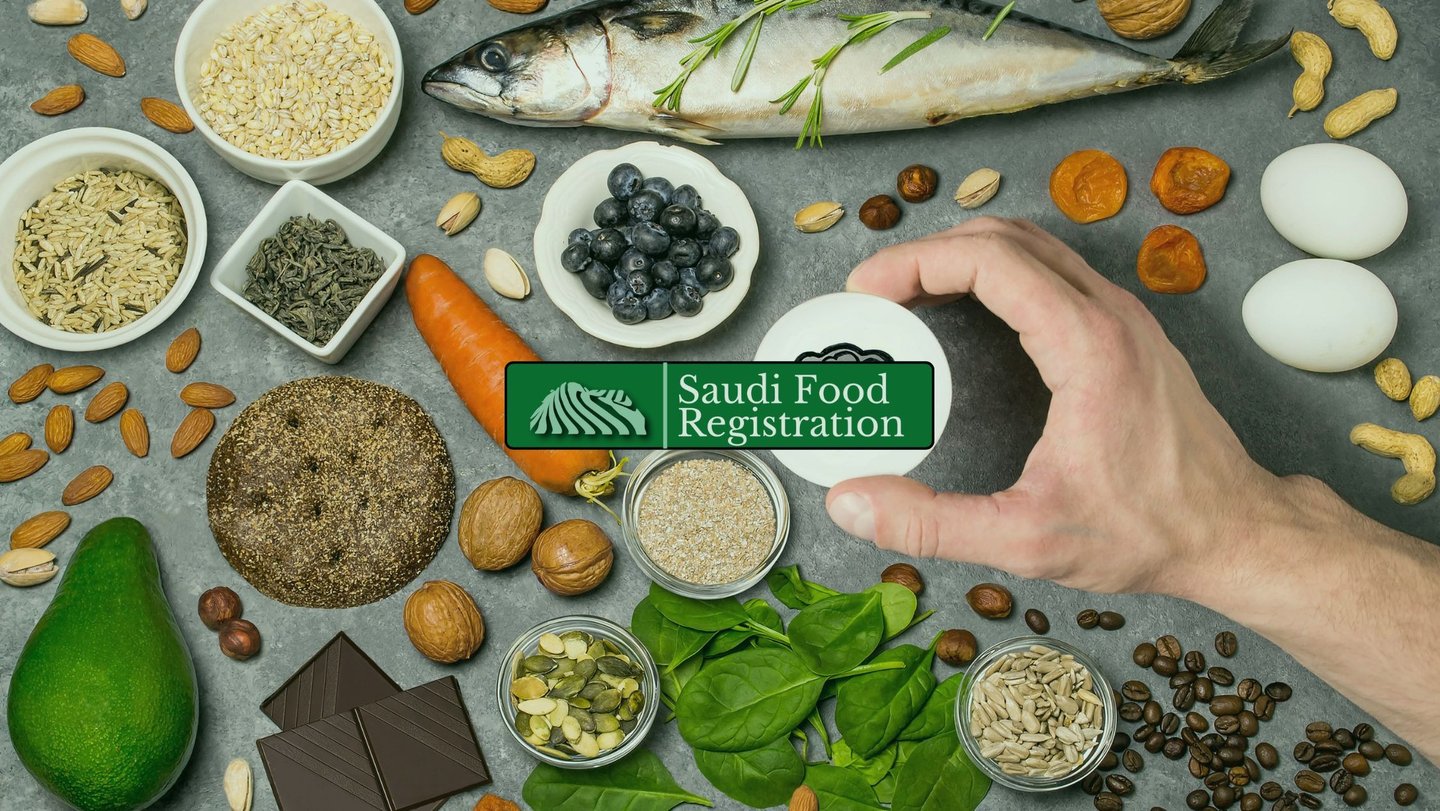Novel & Functional Food Approval
Saudi Food Registration helps businesses navigate novel & functional food compliance in MENAT. Learn the key steps, regulations, and approval processes.
1/16/20252 min read


Registering Novel & Functional Foods in MENAT:
General Guidelines & Regulations
In today's globalized food market, understanding the registration process for novel and functional foods in the MENAT region is crucial for manufacturers seeking expansion.
This guide outlines key steps and requirements to ensure successful food product registration across multiple markets.
Understanding Regulatory Authorities in MENAT
Regulatory bodies in the MENAT region oversee food safety, compliance, and approval of novel and functional foods. Key authorities include:
Saudi Arabia – Saudi Food and Drug Authority (SFDA)
United Arab Emirates – Emirates Authority for Standardization & Metrology (ESMA)
Turkey – Turkish Food Codex
Egypt – National Food Safety Authority (NFSA)
Jordan – Jordan Food and Drug Administration (JFDA)
Other GCC Countries – Respective national food regulatory bodies
Essential Prerequisites for Food Registration
Before initiating the registration process, manufacturers must ensure their products meet the following foundational requirements:
Product Safety Documentation
Manufacturers must provide:
Complete ingredient lists with percentage compositions.
Certificates of analysis from accredited laboratories.
Stability studies and shelf-life documentation.
Production process flow diagrams.
Quality control measures implemented during manufacturing.
Labeling Requirements
Labeling regulations in MENAT countries include:
Mandatory Arabic and local language labels for product details.
Clear nutritional facts panel as per regulatory guidelines.
Country of origin statement.
Production and expiration dates.
Halal certification where applicable.
The Registration Process: Step-by-Step
1. Initial Preparation
Register the company with the relevant food regulatory authority.
Prepare and compile technical documentation, including:
Product formulation details.
Manufacturing process descriptions.
Quality control procedures.
Raw material specifications.
2. Document Submission
Submit the electronic application through the respective portal.
Upload all required technical documentation.
Provide product samples if requested.
Include relevant international certificates and approvals.
3. Technical Review
Regulatory authorities assess:
Product composition and safety.
Compliance with regional technical regulations.
Manufacturing facility standards.
Label compliance with local requirements.
4. Laboratory Testing
Products undergo testing at approved laboratories to verify:
Microbiological safety.
Chemical composition.
Nutritional content accuracy.
Contaminant levels.
Common Challenges and Solutions
Regulatory Compliance
Challenge: Navigating varying regulatory requirements across MENAT countries.
Solution: Work with regional regulatory consultants to stay updated on evolving guidelines.
Documentation Accuracy
Challenge: Ensuring all technical files meet different regulatory standards.
Solution: Implement a standardized documentation process aligned with multiple country regulations.
Labeling Compliance
Challenge: Meeting bilingual and technical labeling requirements.
Solution: Work with local professionals to ensure accurate translations and compliance verification.
Best Practices for Successful Registration
Pre-submission Preparation
Research similar registered products.
Review the latest regulatory guidelines.
Compile complete technical files before submission.
Quality Assurance Measures
Implement strict quality control protocols.
Maintain detailed batch records for traceability.
Post-Registration Compliance
Monitor product performance and market feedback.
Keep documentation updated for future renewals.
Timeline and Cost Considerations
The food registration timeline typically takes:
2-4 months for standard food products.
4-6 months for novel foods.
6-12 months for special-use foods.
Registration costs depend on:
Product category and complexity.
Required laboratory testing.
Registration fees.
Document translation and certification expenses.
Future Trends in MENAT Food Registration
Regulatory bodies across MENAT continue refining their processes, focusing on:
Digital transformation to streamline approvals.
Blockchain integration for product traceability.
Sustainability initiatives for improved food safety standards.
How Saudi Food Registration Can Support You
Saudi Food Registration specializes in guiding manufacturers through the regulatory landscape, ensuring:
Seamless compliance with MENAT food regulations.
Accurate and efficient documentation submissions.
Faster approvals through expert regulatory support.
With our expertise, businesses can navigate the complexities of food registration smoothly, ensuring successful market entry and long-term compliance.
Related Reads
Master SFDA Labeling Standards – Learn how to meet Saudi Arabia’s strict labeling requirements and avoid common compliance pitfalls.
GMP Food Manufacturing Certificate – Discover how Good Manufacturing Practices impact food production and regulatory approvals.
Product Registration Crisis Guide – Strategies to overcome registration challenges and regulatory setbacks.
Avoid Costly Mistakes in 2025 – Key insights to prevent delays and ensure compliance with the latest regulatory updates.
Navigating Maximum Residue Limits is key to ensuring food safety and regulatory success.
